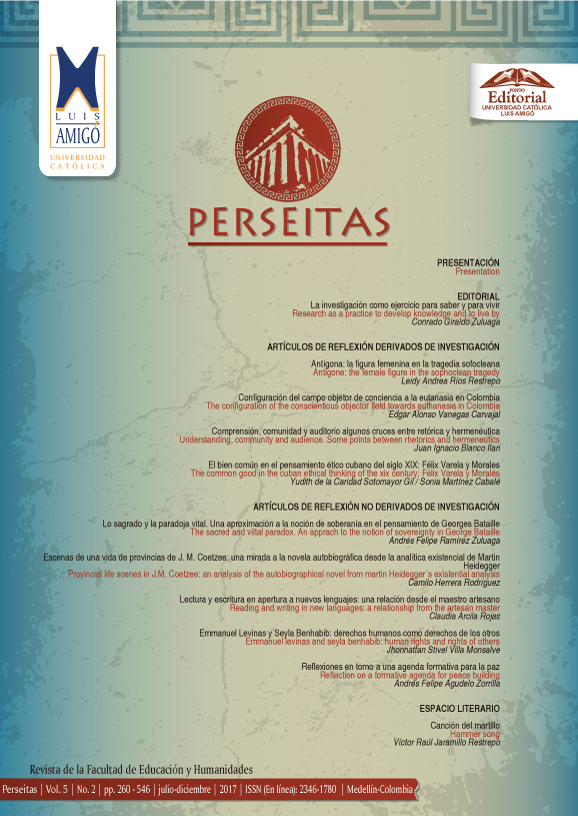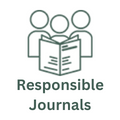Reading and writing in new languages: a relationship from the artesan master
DOI:
https://doi.org/10.21501/23461780.2423Keywords:
Context, Body, Language, Teacher, Subjectivity, Subject, Text, Life, DeathAbstract
This paper reflects on the master as an artist in reading and writing from a formative
perspective in which the subjects work on their subjectivity through language and
otherness. In the social and cultural character of language these constructions find
their expression in texts and contexts that create the scenario for acting and dialog
in subjectivities; as a result, intimate dialogs in which teacher´s voices in the
classroom are acknowledged and their everyday things that become rituals in their
teaching and learning practices within a biographical narrative approach which
allows education and teachers to tell stories and narratives in which the subjects can
build on their subjectivity. It can be considered from such achievements, that the
subject and subjectivity processes of languages accomplish the biographical and
historical relationship that allow schools to be an environment to display words,
feelings, meanings, a place where life is an experience to learn from death.
Downloads
References
Ariès, P. (2008). Morir en Occidente. Buenos Aires, Argentina: Adriana Hidalgo Editora.
Engels, F. (1876). El papel del trabajo en la transformación del mono en hombre. Moscú, Rusia: Editorial Progreso.
Freire, P. (1969). La educación como práctica de la libertad. Buenos Aires, Argentina: Siglo XXI Editores.
Freire, P. (2014). Por una pedagogía de la pregunta. Buenos Aires, Argentina: Siglo XXI Editores.
Heidegger, M. (1972). Qué significa pensar. Buenos Aires, Argentina: Editorial Nova.
Leroi-Gourhan, A. (1971). El gesto y la palabra. Caracas, Venezuela: Ediciones de la Biblioteca Universidad Central de Venezuela.
Le Bretón, D. (2016). Desaparecer de sí mismo. Una tentación contemporánea. Madrid, España: Ediciones Siruela.
Martínez, B. A. (1997). Crónica del Desarraigo historia del maestro. Bogotá, Colombia: Cooperativa Editorial Magisterio.
Maturana, H. (2001). Emociones y lenguaje en educación y política. España: Editorial Dolmen.
Mèlich, J. (2002). Filosofía de la finitud. Barcelona, España: Herder.
Nietzsche, F. (2003). La genealogía de la moral. Madrid, España: Alianza Editorial.
Onfray, M. (2000). La construcción de uno mismo. Buenos Aires, Argentina: Libros Perfil.
Onfray, M. (2005). Antimanual de filosofía. Madrid, España: Editorial EDAF.
Onfray, M. (2016). Cosmos. Barcelona, España: Editorial Paidós.
Platón. (1988). República. Madrid, España: Editorial Gredos.
Varela, F., Thompson, E., y Rosch, E. (2005). De cuerpo presente. Las ciencias cognitivas y la experiencia humana. Barcelona, España: Gedisa.
Downloads
Published
How to Cite
Issue
Section
License
La revista y los textos individuales que en esta se divulgan están protegidos por las leyes de copyright y por los términos y condiciones de la Licencia Creative Commons Atribución-No Comercial-Sin Derivar 4.0 Internacional.
















